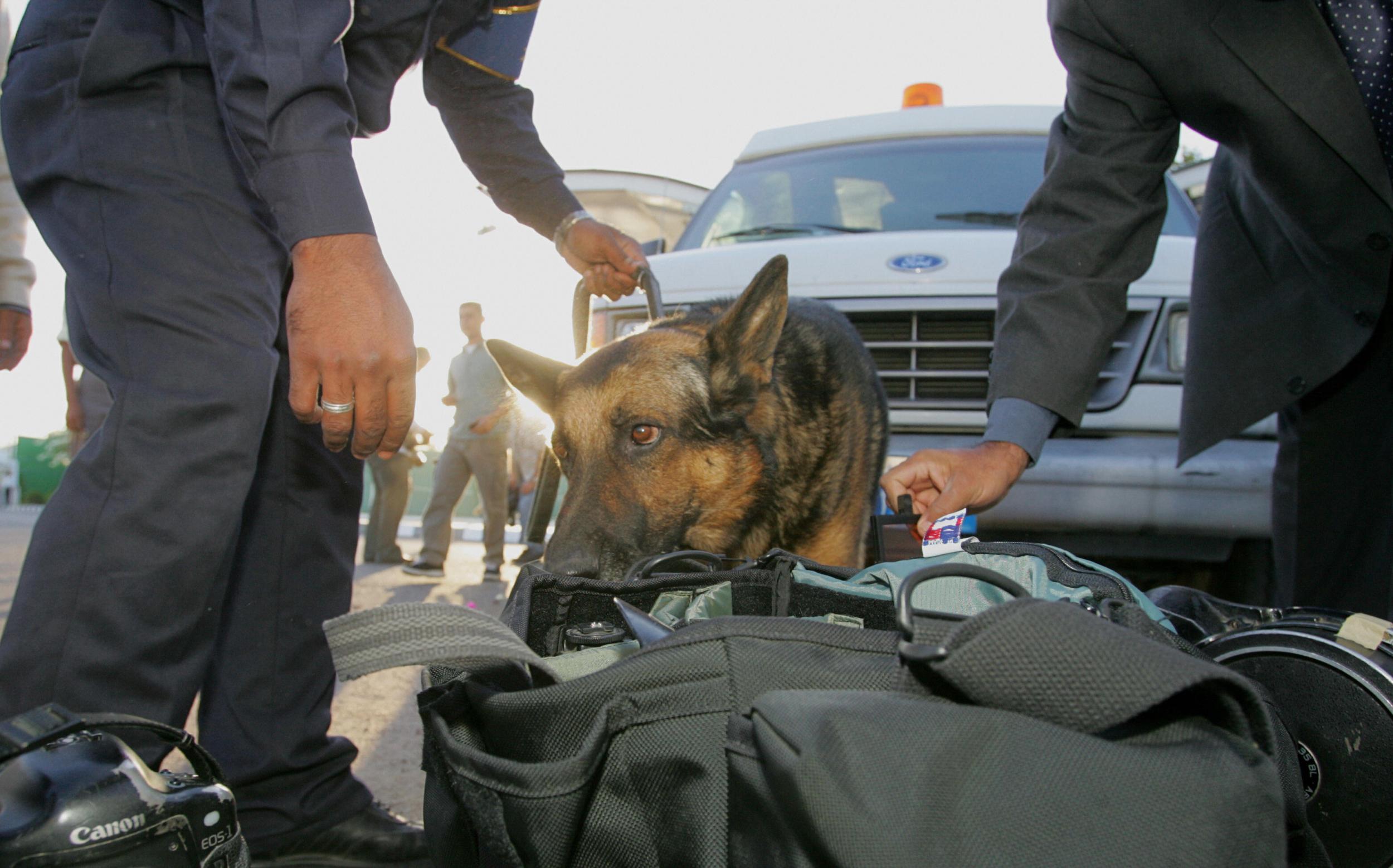Your support helps us to tell the story
From reproductive rights to climate change to Big Tech, The Independent is on the ground when the story is developing. Whether it's investigating the financials of Elon Musk's pro-Trump PAC or producing our latest documentary, 'The A Word', which shines a light on the American women fighting for reproductive rights, we know how important it is to parse out the facts from the messaging.
At such a critical moment in US history, we need reporters on the ground. Your donation allows us to keep sending journalists to speak to both sides of the story.
The Independent is trusted by Americans across the entire political spectrum. And unlike many other quality news outlets, we choose not to lock Americans out of our reporting and analysis with paywalls. We believe quality journalism should be available to everyone, paid for by those who can afford it.
Your support makes all the difference.The US has stopped exporting bomb-sniffing dogs to Egypt and Jordan after a number of animals died from mistreatment and neglect, US authorities said.
The decision, which is temporary, follows a US report released in September highlighting cases of negligence of dogs sent to Jordan, Egypt, and eight other countries.
Sniffer dogs are part of the Antiterrorism Assistance Explosive Detection Canine Program, which was established by the US government in 1983 to provide training and supplies to foreign law enforcement personnel.
A senior State Department official told reporters on Monday: “Any death of a canine in the field is an extremely sad event and we will take every measure possible to prevent this from happening in the future.”
The official added the dogs “play a critical role in our counterterrorism efforts overseas and in saving American lives”.
The September report, published by the State Department Office of the Inspector General, detailed unacceptable conditions in Jordan and included photographs of emaciated dogs and faeces-covered floors in kennels.
A follow-up report earlier this month found two dogs had died in Jordan of heat stroke and insecticide poisoning respectively.
And a CVC veterinarian said the lack of reinforcement training once the dogs settle in Jordan diminished the success rate of detecting an explosive to less than 50 percent, compared to about 90 percent when they first arrive.
It also found three out of 10 dogs sent to Egypt in August 2018 have died, but Egyptian authorities have not allowed US personnel to access the dogs or their kennels.
The canine provision programme began over 20 years ago but the report determined that relevant departments, including the Bureau of Counterterrorism and the Bureau of Diplomatic Security, are not equipped to monitor the health and welfare of dogs sent to partner countries.
“The Department does not impose standards of care on the foreign nations receiving canines trained at the Canine Validation Centre (CVC),” said the report.
“As a result, the Department lacks any assurances that partner nations are maintaining at least a minimum level of care necessary for the dogs to perform the explosive detection tasks assigned.”
Egypt and Jordan have not made any public comment on the issue so far.
Other countries that receive sniffer dogs from the US include Bahrain, Indonesia, Lebanon, Mexico, Morocco, Nepal, Oman, and Thailand.
According to the Wall Street Journal, the programme has cost the State Department’s office of Antiterrorism Assistance millions of dollars in recent years.
The training program for 10 canine teams, which lasts for a month, costs US$640,000. The cost of situating a veterinarian and a veterinarian technician in Jordan for one year costs the Department approximately US$540,000.

Join our commenting forum
Join thought-provoking conversations, follow other Independent readers and see their replies
Comments